What not to eat when pregnant
What not to eat when pregnant
Which foods and drinks do I need to avoid when I'm pregnant, and why?
It is important to eat a healthy, balanced diet when you are pregnant, not only to help your baby grow healthily and give them the best start in life, but also to help you feel your best too. Find out more about a healthy, balanced diet by reading our pages on healthy and sustainable diets.
However, when you are pregnant there are certain foods and drinks that you are recommended to avoid or take care with, as there’s a small risk they may make you ill or harm your baby.
If you are concerned about anything you have eaten or drunk you should talk to your GP or midwife, but it is important to recognise that the risk of getting food-related illnesses during pregnancy is low.

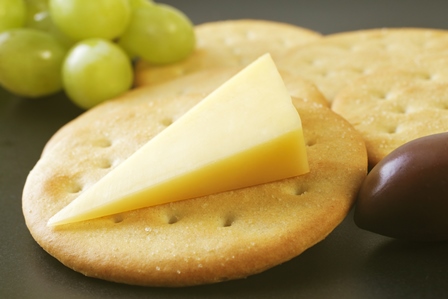
Cheese
Avoid
- soft cheeses with white rinds such as brie, camembert and others with a similar rind, including goats' cheese with a rind (sometimes known as chèvre)
- soft, blue-veined cheeses such as Danish blue, gorgonzola and Roquefort
These cheeses can contain listeria bacteria that cause listeriosis. Listeriosis is an infection that can cause flu-like symptoms. Although listeriosis is extremely serious in pregnancy, it is very rare.
For example, between 2006 and 2015 in England and Wales, on average there were about 180 cases reported per year, and only about 1 in 8 of those was pregnancy related.
Enjoy
If the cheeses listed above have been cooked thoroughly (steaming hot all the way through), they are safe to eat in pregnancy, as this will kill any harmful bacteria.
There are, however, lots of soft or semi-soft cheeses that are safe for you to eat in pregnancy. These include:
- cottage cheese
- mozzarella
- feta
- cream cheese
- paneer
- ricotta
- halloumi
- some types of goats' cheese
- processed cheeses, such as cheese spreads and singles (slices)
All hard cheeses are safe to eat, even if they are unpasteurised (see 'Unpasteurised milk and cream' below), or blue veined (such as stilton), because they contain less water and so bacteria are less likely to grow.
These include:
- cheddar
- red Leicester
- double Gloucester
- Wensleydale
- edam
- emmental
- gouda
- gruyère
- jarlsberg
- parmesan
- stilton
Cheese is a good provider of nutrients such as calcium but remember that many cheeses are high in saturated fat and salt, and you should eat these in moderation.
Check the food label to choose reduced fat versions and those lower in salt.
|
A spotlight on goats' cheese Do I have to avoid all types of goats’ cheese? Soft goats' cheese should be avoided, such as chèvre or others with a similar rind. These may be served in restaurants in dishes such as goats' cheese salad. But not all goats’ cheese is unsafe to eat.
|

Unpasteurised milk and cream
Avoid
- unpasteurised milk and cream
Pasteurisation is a heat treatment process to kill bacteria and prevent food poisoning.
Unpasteurised or ‘raw’ milk (from cows’, goats’ or sheep) and ‘raw’ cream may contain harmful bacteria that cause food poisoning so you should avoid these during pregnancy. These can be sold at farmers' markets and farm shops.
In England, unpasteurised milk and cream must carry a warning saying that it has not been heat-treated and may contain harmful bacteria.
In Wales, there must be an additional warning for vulnerable groups (which includes pregnant women).
Raw drinking milk and cream is banned in Scotland.
Enjoy
Milks and yogurts sold in shops, supermarkets and restaurants in the UK are pasteurised and fine to eat but do take care about the cheeses that you buy, particularly soft, blue veined or cheeses with rinds if you are not using them in cooking.
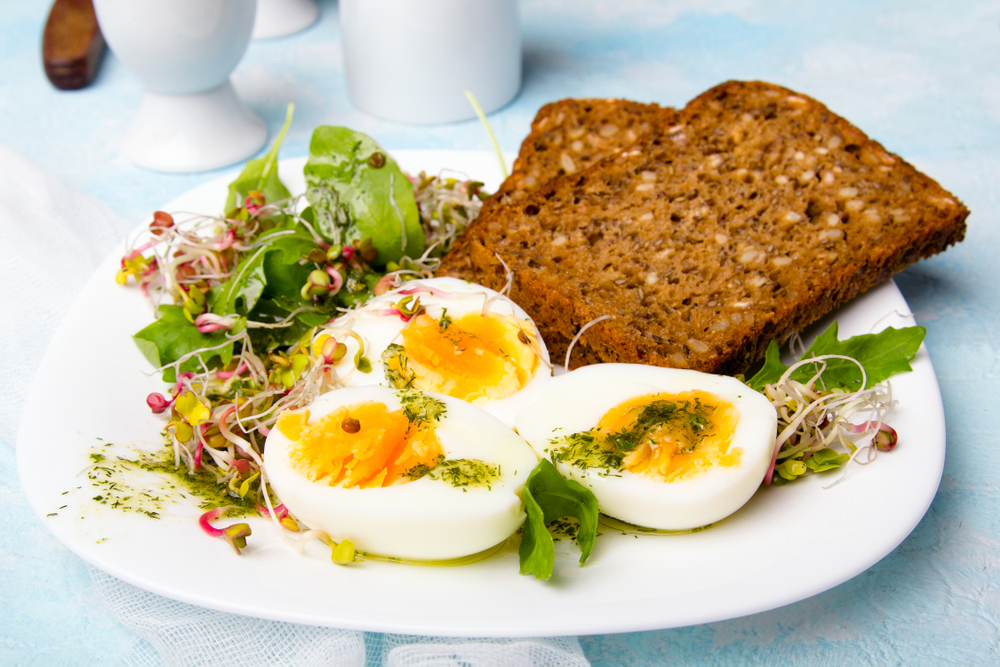
Eggs
Avoid
- raw or undercooked hen eggs NOT produced under the British Lion code*
- raw or undercooked duck eggs, quail eggs and goose eggs
- eggs from outside of the UK
*Eggs produced under the British Lion scheme are produced under strict hygiene and welfare standards and should carry a lion stamp on them.
Remember that the raw eggs listed above can be used to make foods such as homemade or restaurant made mayonnaises, soufflés, mousses and some ice creams, so if you are unsure do check that they have been made using UK Lion eggs.
Enjoy
The good news is that you can safely eat raw or lightly cooked hen eggs, or foods containing them, that are produced under the British Lion Code of Practice. More than 90% of UK eggs are produced this way and carry the British Lion mark. This is because the British Lion Code of Practice ensures high standards of food safety, and this scheme has drastically reduced the presence of salmonella in UK eggs.
Non-British Lion eggs and non-hens' eggs are typically safe to eat if they have been cooked until the whites and yolks are solid. Thoroughly cooking eggs will kill any salmonella bacteria.
Most shop-bought mayonnaises and dressings from large retailers contain pasteurised eggs so are safe to eat. If there is any doubt, check the food label to make sure.
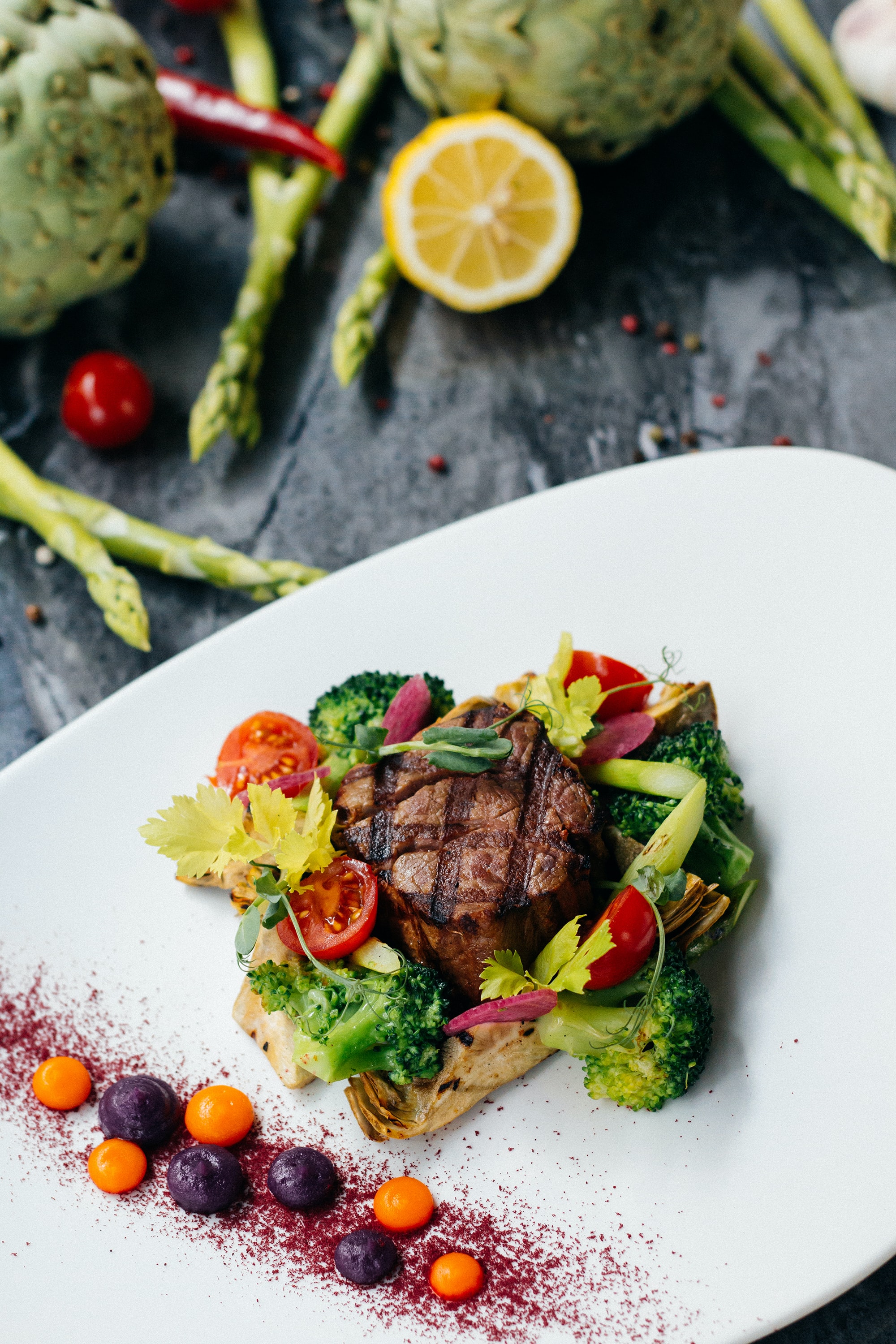
Meat
Avoid
- raw or undercooked meat
- raw cured meats, for example Parma ham (prosciutto), chorizo, pepperoni and salami
A parasite that causes toxoplasmosis is found in raw and undercooked meat, unpasteurised goats' milk, soil, cat litter or faeces (poo), and untreated water. Toxoplasmosis is an infection that can affect the growing baby in pregnancy.
Enjoy
You can still enjoy meat as part of a healthy, balanced diet but it should be cooked thoroughly with no pink meat or blood left (so well cooked and not rare meat). Be especially careful with poultry (such as chicken, turkey), pork, sausages and minced meat, including burgers and meatballs.
Cold cooked meats like turkey, beef and chicken, and pre-packed meats such as ham and corned beef, are safe to eat in pregnancy. But remember that many processed meats are high in salt, so check the food label to choose those lower in salt.
Thoroughly cooking cured/fermented meats, like salami, prosciutto, chorizo and pepperoni will reduce the risk, for example pepperoni on a pizza or chorizo in a pasta dish. The NHS website also advises that freezing such cured or fermented meats for four days at home will reduce the risk from parasites, as freezing kills most parasites and makes the meat safer to eat.
If you are eating out in a restaurant that sells cold cured or fermented meats, you may want to ask if it’s been frozen, or avoid eating it to be on the safe side.
Liver and pâtés
Avoid
You should avoid all types of pâtés.
- liver and liver products such as liver pâté and sausage
- all types of pâtés, even fish, crab and vegetarian pâtés
Liver and liver products can have high levels of vitamin A, which can be harmful to your baby.
All types of pâtés may contain listeria bacteria which can cause listeriosis.

Fish and shellfish
Seafood is a great provider of nutrients in pregnancy but remember to:
Avoid
- shark, marlin and swordfish
- raw shellfish
- ready-to-eat cold-smoked and cured fish (such as smoked salmon, smoked trout and gravlax)
- raw or lightly cooked wild fish
Shark, marlin and swordfish can contain high levels of mercury that can harm your baby’s developing nervous system.
Raw shellfish carries a risk of food poisoning.
|
A word on raw, ready-to-eat cold-smoked and cured fish. The Foods Standards Agency and Foods Standards Scotland (July 2023) advised that you should avoid ready-to-eat cold-smoked fish such as smoked salmon and smoked trout or cured fish such as gravlax because it has a higher risk of carrying Listeria, a type of bacteria that can cause serious illness in mothers and their babies. Cooking cold-smoked or cured fish until steaming hot all the way through (not just warm) will kill any bacteria that may be present. You can enjoy sushi, as long as the fish has been cooked thoroughly but do avoid sushi that contains cold-smoked or cured fish. Wild fish, such as wild Atlantic salmon or sea trout caught at sea or in UK rivers, can sometimes contain parasitic worms and harmful bacteria. Cooking thoroughly will kill any worms and/or bacteria. |
Limit
Oily fish can contain pollutants such as dioxins and polychlorinated biphenyls (PCBs). Therefore, you should not eat more than two portions of oily fish (such as salmon, trout, sardines, mackerel) and certain non-oily fish (such as dogfish, sea bass, sea bream, turbot, halibut, crab) each week.
You should also limit tuna to no more than two fresh tuna steaks (about 140g cooked or 170g raw each) or four medium-sized cans a week (about 140g per can when drained), as it contains more mercury than other types of fish.
Enjoy
Eating fish is good for you and for your baby’s development, because it is a good source of several vitamins and minerals, and oily fish also contains essential long-chain omega-3 fats that are important for your baby's eye and brain development.
You should try to eat one portion (140g) of oily fish a week. As long as you do not eat more than two portions a week, the health benefits of eating oily fish are greater than the risks from pollutants.
There's no need for you to limit the amount of white fish and well-cooked shellfish you eat.
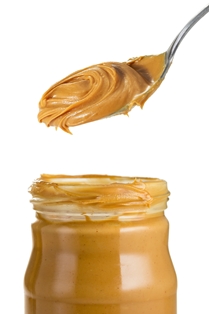
Peanuts
If you do not have a peanut allergy, peanuts are safe to eat in pregnancy.
In the past, if there was a history of allergies in the immediate family the UK government recommended against eating peanuts during pregnancy, because it was thought that they may increase the chance of the baby developing a peanut allergy.
However, more recent research does not suggest an increased risk and health advice has changed, so if you wish you can now choose to eat peanuts or foods containing peanuts (such as peanut butter) as part of a healthy, balanced diet, unless you are allergic to them. If you have concerns about the risk of peanut allergy, then discuss these with a GP or midwife.
Fortified foods and supplements with vitamin A
Avoid
- vitamin supplements and fish oil supplements with vitamin A
- foods fortified* with vitamin A
*Fortified foods are foods to which extra nutrients have been added (check the label)
High levels of the retinol form of vitamin A can be harmful to your unborn baby.
It's not safe to take multivitamins containing the retinol form of vitamin A, or fish liver oils, when you are pregnant, such as cod liver oil containing more than 700µg (micrograms) per day. Also, you should avoid foods that have vitamin A added (they may say 'fortified with vitamin A' on the label).
You should always ensure any supplements you take are appropriate for pregnancy.
Other foods
Liquorice
Avoid
- liquorice root
Liquorice root has a particularly high concentration of a compound called glycyrrhizin, which may be harmful to your unborn baby.
Enjoy
You can consume liquorice sweets – there's no specific recommendation to avoid them, but they typically are high in sugars so if eaten should be limited.
Liquorice teas are also safe to drink in pregnancy, as long they are within the limits of no more than four cups a day of herbal and green teas (see 'Herbal and green teas' below).
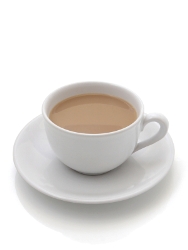
Caffeine
Limit
Caffeine can be found in:
- coffee
- tea (including green tea)
- chocolate
- some sports/energy/soft drinks
- some cold and flu remedies
Very high levels of caffeine during pregnancy have been linked to the baby having a low birthweight, which can increase the risk of health problems later in life. There is also a very slight risk that too much caffeine can cause miscarriage.
You should limit your intake of caffeine to around 200mg per day, which is roughly two mugs of instant coffee (see table below for caffeine content of more foods and drinks).
If you do occasionally have a bit more than 200mg, don't worry as the risks are very small.
|
Foods containing caffeine |
Approx. amount of caffeine (mg*) |
|
1 mug of instant coffee |
100 |
|
1 mug of filter coffee |
140 |
|
1 mug of tea |
75 |
|
1 mug of green tea |
55 |
|
1 can of energy drink (250ml) |
80 |
|
1 can of energy drink (500ml) |
up to 160 |
|
1 can of cola |
40 |
|
50g bar plain chocolate |
25 |
|
50g bar milk chocolate |
10 |
*mg=milligrams
Coffee from a coffee shop or restaurant may contain higher levels of caffeine compared to coffee made at home. If you are unsure about the level of caffeine, opt for decaffeinated versions.
It is important that you remember to drink plenty of fluids during pregnancy, and water and reduced fat milks are good choices. To cut down on caffeine intakes, you could try decaffeinated versions of tea, coffee and cola. For more information read our page on hydration and pregnancy.
Talk to your midwife, GP or pharmacist before taking any cold and flu remedies in case they are not suitable to take whilst you are pregnant.
Herbal and green teas
Limit
- herbal teas
- green teas
Little is known about the safety of herbal and green teas in pregnancy, so it is advised that you drink them in moderation and stick to those made with ingredients that tend to be a normal part of the diet, for example mint or blackcurrant tea.
The Food Standards Agency recommends that pregnant women should not drink more than four cups a day.
The NHS website recommends that you seek advice from your GP or midwife if you are unsure about which herbal products are safe to consume. Also, remember that green tea contains caffeine.
For more information on herbal medicines in pregnancy read this page from the NHS.
Alcohol
The safest approach may be to avoid all alcoholic drinks during pregnancy.
In 2016, the Department of Health updated the guidelines for alcohol consumption and the Chief Medical Officer now recommends the following to pregnant women:
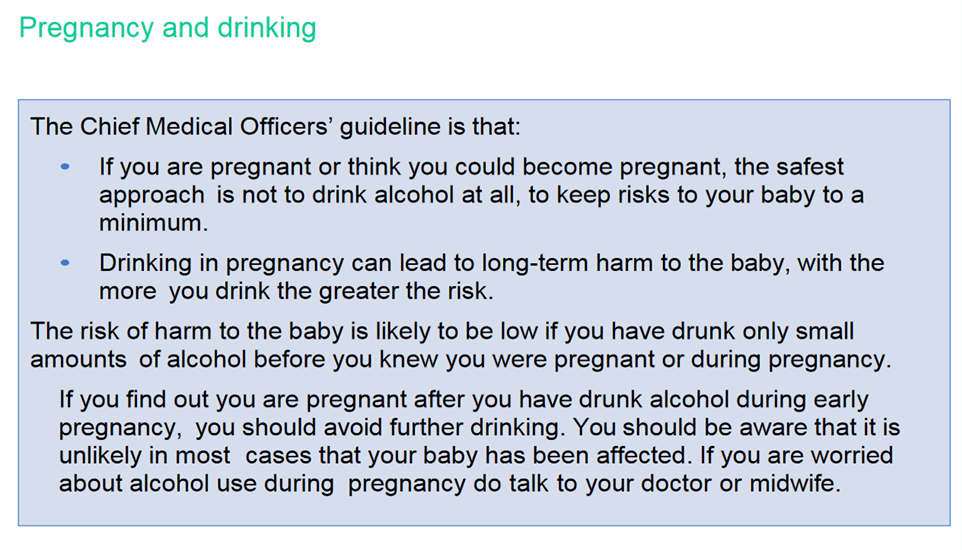
Drinking heavily during pregnancy is linked to:
- early miscarriage
- premature birth
- restricted growth in the womb
- stillbirth
- illness in infancy and childhood
- learning difficulties and behavioural problems in infancy and childhood
- fetal alcohol syndrome (problems found in children whose mothers drank heavily during pregnancy such as facial abnormalities, heart defects, poor growth and severe mental and developmental problems).
If you are concerned or unsure about alcohol use during pregnancy, you should talk to your GP or midwife.
Information reviewed June 2018. Revised July 2023.
